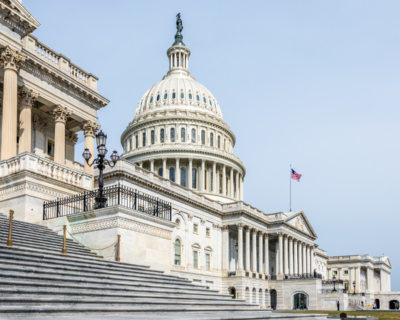Shreveport Times Op-Ed: Correct Louisiana’s Prison System
We can do better than the “lock ’em up and throw away the key” approach
While Gov. Bobby Jindal’s proposal to sell state-owned prisons has been the focus of much discussion, it is time to address the broader issue of criminal justice reform in Louisiana.
One in 55 Louisiana adults are behind bars, and half the state’s inmates are nonviolent, non-sexual offenders. The Bayou State has the highest incarceration rate per capita in the United States — a designation costing Louisiana taxpayers more than $665 million in corrections spending annually.
While the prisons are vital to protect the public from violent and dangerous criminals, the “lock ’em up and throw away the key” approach to nonviolent offenders is swamping taxpayers in a flood of red ink. What is more, these crippling costs are failing to deliver a commensurate public safety return for taxpayers.
In fact, Louisiana’s 2008 crime rate exceeded the national average by 22 percent while the state’s violent crimes nearly doubled the national average. Today’s policies aren’t working for the people of Louisiana — an idea Jindal echoed during a recent news conference spotlighting criminal justice reform’s importance in his cost-cutting agenda.
More spending on prisons does not necessarily translate into greater public safety. Consider this: Over the past seven years, Florida’s prison population increased by 16 percent. Meanwhile, New York’s fell by 16 percent. During that same period, the Empire State’s crime rate dropped twice as much as the Sunshine State’s.
Too often, offenders leave prisons as more hardened criminals than when they entered. Louisiana prisons co-mingle nonviolent offenders, at whom we are simply upset, with violent criminals and gang leaders we are afraid of. Nonviolent offenders often can be supervised and treated in the community so they do not become the criminals we are scared of. Evidence shows that many alternatives — such as drug courts, electronic monitoring, day reporting and work restitution programs — can more cost-effectively hold many nonviolent offenders accountable and reduce recidivism.
Realizing the need to produce more public safety with every precious taxpayer dollar, many states are beginning to reform their policies, reducing spending and crime simultaneously. South Carolina lawmakers passed a bipartisan bill in 2010 that aimed to reserve costly prison beds for dangerous criminals while using lower-cost community supervision programs as punishment for low-risk, nonviolent offenders. As a result, that state expects to save $175 million in prison construction this year and $60 million in operating costs over the next several years.
Through solutions based on the principles of limited government and personal responsibility, we can reduce crime and incarceration. The national Right on Crime initiative, in which we are engaged, is built around six key principles. First, the criminal justice system must be transparent and programs and facilities must be held accountable for results. Second, a victim’s conception of justice, public safety, and the offender’s probability of reoffending should be factors during the sentencing process. Third, the corrections system must emphasize personal responsibility, work, restitution, community service and treatment.
Fourth, families, faith-based groups and community organizations should be involved in rehabilitation. Fifth, policies must align incentives with our goals of public safety, victim compensation and cost-effectiveness. Finally, criminal law should be reserved for conduct that is blameworthy or threatens public safety, not wielded to grow the government.
Louisiana’s criminal justice system needs corrections. The governor and leading public officials have begun this process. As conservatives re-evaluate the efficacy of hundreds of state and federal government programs, it is only just that we demand the transformation of a system that grows when it fails to one that rewards results.
This article originally appeared in the Shreveport Times on April 16, 2011.
Kevin P. Kane is president of the Pelican Institute for Public Policy in New Orleans. Marc Levin is director of Texas Public Policy Foundation’s Center for Effective Justice.




